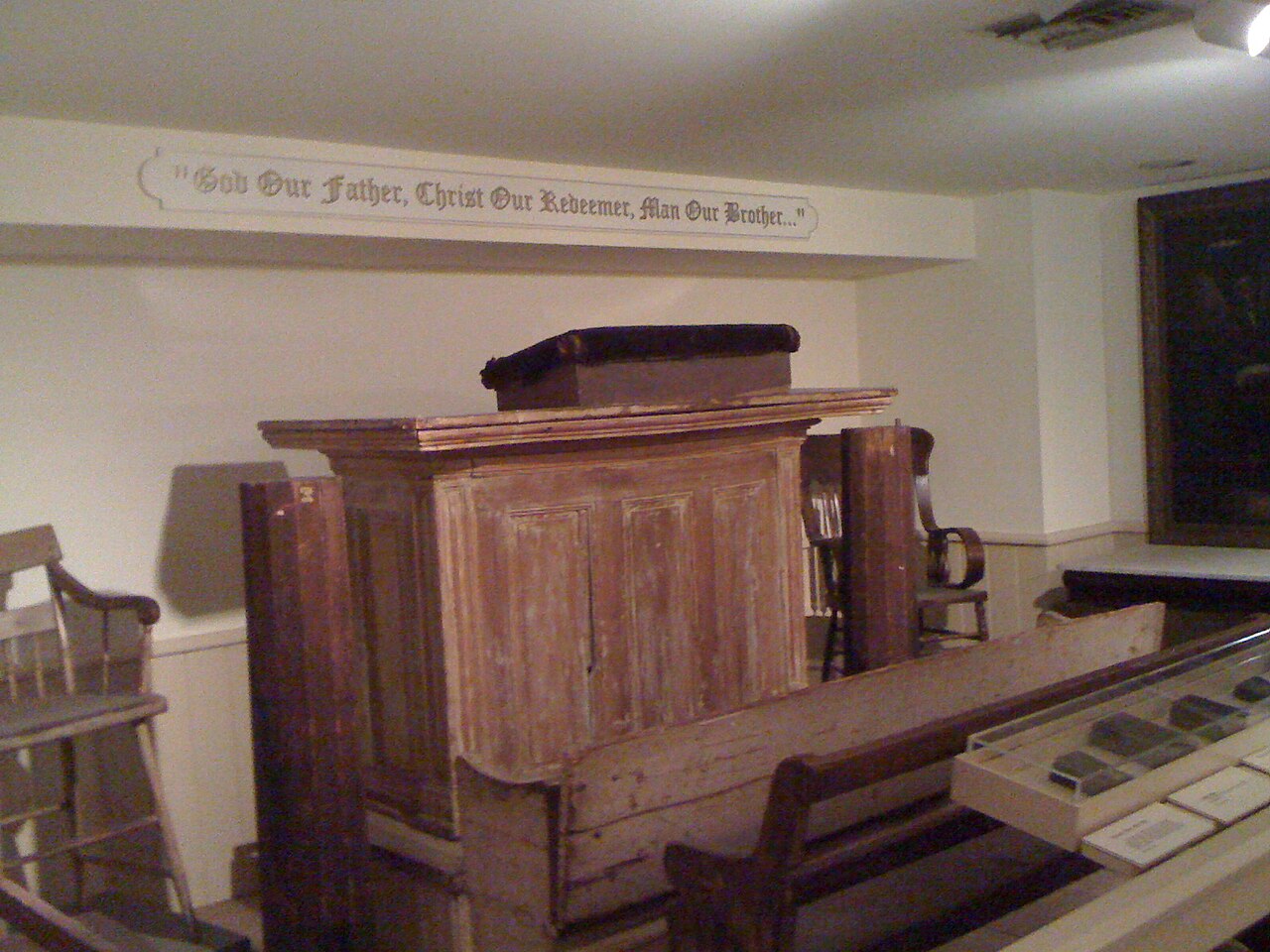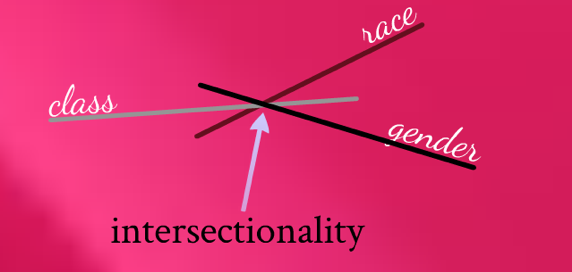What are the qualities of an effective leader in pastoral ministry? For some, homiletical skill, education, faithfulness, service, integrity, and the non-negotiable element of God’s call are more than enough. The truth is these traits should be enough. However, some disciples experience a different reality concerning receptiveness to God’s call in an identical ministry context and with identical aptitude for ministry service.
THE INDISPUTABLE NATURE OF GOD’S CALL
God’s call is essential. It is the unavoidable first step. An invitation from the Creator to the ones created regarding a purpose yet to be revealed. Although God’s call is unobstructed, external barriers can limit success in making “full proof of your ministry”.[1] That is if the criterion for an effective pastoral leader is not aligned with answering God’s call and competence but exclusively based on gender.

Original Pulpit of Bishop Richard Allen founder of the African Methodist Episcopal Church (AME), the first independent Black denomination in the U.S. (Image from Creative Commons)
My context is the itinerant ministry in the Sixth Episcopal District (S.E.D) of the African Methodist Episcopal (A.M.E.) church. I am African American, female, heterosexual, 40-ish, and an ordained itinerant elder who provides efficient pastoral leadership in the Atlanta North Georgia Conference (A.N.G.C.). In this context, the room is shared with Bishop(s), Presiding Elders, Pastors, Clergy, and Laity. As members of the ANGC, we regularly convene but seldom share personal stories of ministry opposition unique to the environment.
…FOR YOU KNOW THAT YOUR BROTHERS
AND SISTERS
IN THE WORLD ARE UNDERGOING THE SAME KINDS OF SUFFERING.
I Peter 5:9
THE SIGNIFICANCE OF A STORY
Reflecting upon such matters while still actively engaged in the itineracy is significant. It is important because it appears the most undesirable encounters were related to the classification of my gender. Moments of adversity conveniently wore a mask of communal ministry opposition, although not experienced by the entire community. Staged walkouts, inappropriate name changes, lockouts, inequity in pay, opposition from women, sexual harassment, and other moments of resistance speak to the tension of being called by God, while simultaneously facing rejection.

Image from the Official A.M.E. Church Website
My experience has given birth to the following research question: How can churches in the S.E.D. of the A.M.E. church better understand the impact of gender on itineracy and be more receptive to qualified leadership?
There is no truth for and about black people that does not emerge out of the context of their experience…This means that there can be no Black Theology which does not take the black experience as a source for its starting point.
James H. Cone
TELLING OUR OWN STORIES

Image from Creative Commons
In Black Theology “the black experience” is the starting point. [2] Accordingly, the stories of itinerant preachers in the S.E.D. were given opportunity to be heard. Interviews were conducted among twelve (12) active itinerant preachers. One male and one female were selected from each of the six (6) Conferences in Georgia. The similarities were easy to recognize, but there were obvious points of departure. Namely, the women who were interviewed listed additional oppressive factors. It is a term Kimberle’ Crenshaw refers to as intersectionality– being impacted by multiple forces and then abandoned to fend for yourself. [3] Or perhaps as best described by Jacquelyn Grant, as the “triply oppressive realities of racism, sexism, and classism.” [4]
EXPOSING A BIGGER PROBLEM
Examination of what is occurring in Georgia reveals that similar struggles are transpiring on an ecumenical level. For this reason, additional data was gathered through anonymous surveys distributed to members of the clergy and laity. 274 clergy and 166 laypersons responded.

Created by Openclipart
In the clergy survey, findings revealed concerns about pay disparities, women as sources of perpetual opposition, and the authoritative stance of traditional ministry views. In the lay survey, a very small percentage (0.60%) believe that the pastoral role should be exclusively assigned to men. A few others were not receptive to a woman being assigned as the pastor of their local congregation. These attitudes are most closely aligned with what would be expressed by a patriarchal culture. Patriarchal views and similar expressions are considered to be barriers to unity and a threat to the community.[5]
We see the visible manifestation of patriarchal structures and hierarchies whether in the church or in African cultures, wherever we encounter the subordination of women’s services or refusal to listen to women’s voices. Mercy Amba Oduyoyo
DISARMING PYRAMIDS OF POWER

Image from Creative Commons
Immovable mindsets are scattered throughout each of the 6 Conferences. Despite the episcopal leadership who sits at the top, traditional beliefs have spread abroad to create a silently oppressive culture. Those who have an issue with women’s leadership suggest overcoming the barrier of patriarchal ideology as a primary obstacle.
“THE PYRAMIDS OF POWER THAT EXISTS IN AFRICAN CULTURE HAVE FOUND COMPANIONS IN CHRISTIANITY”
quotation from Daughters of Anowa: African Women & Patriarchy
Regardless of progress, a system must be in place to prevent a return to an oppressive existence that is of particular concern for women. My proposal is for isolated open dialogue to serve as “the gatekeeper” regarding the collective understanding of the non-negotiable traits of an effective pastor. These conversations will provide a clear benchmark regarding fair expectations, thus exposing and eliminating the temptation for personal gender preferences that interfere with the acceptance of qualified leadership.
Image from Creative Commons
ROUNDTABLE DISCUSSIONS
In November of 2023, a series of five (5) roundtable discussions were introduced to encourage dialogue among power dynamics within a hierarchical structure. Open dialogue occurred with the Bishop of the S.E.D. (male), Presiding Elders of the ANGC (4 males), Pastors of the ANGC (8: 4 males, 4 females), Lay of the ANGC (8: 4 males, 4 females), Lay of the local church (8: 4 males, 4 females) and Clergy of the local church (4: 2 males, 2 females).
The objectives of each roundtable discussion were:
-
- To create an environment where participants are considered equal and encouraged to contribute equally.
-
- To implement the practice of attentive listening.
-
- To clearly define the characteristics of an effective and non-effective pastor as named by each respective group in the top-down relationship when isolated from each other.
As an instructional model, the process is outlined below:
| Series 1/5 | S.E.D. Bishop’s Roundtable: | Start with an open discussion with the top tier of denominational leadership. Uncover the indisputable characteristics of an effective pastor from one expected to model these traits. |
| Series 2/5 | ANGC Presiding Elder’s Roundtable: | Look for evidence of equality and congruence as stated by the top tier of leadership. Compare and contrast responses concerning the traits of an effective pastor and a non-effective pastor. Note similarities and points of departure. |
| Series 3/5 | ANGC Pastor’s Roundtable: | Listen to those actively engaged in pastoral ministry. Allow an opportunity for peer-to-peer and self-evaluation concerning the traits of an effective pastor vs. a non-effective pastor. |
| Series 4/5 | ANGC Lay Roundtable: | Provide lay with a short questionnaire. Be sure to address the traits of an effective and non-effective pastor. Considering power dynamics, allow lay members to discuss among themselves. After a pre-determined amount of time rejoin the discussion as a facilitator and note topics of importance. |
| Series 5/5 | Local Church Clergy and Laity Roundtable: | As before, provide a short questionnaire and ask participants to identify the traits of an effective and non-effective pastor. Considering power dynamics, allow clergy and lay members to discuss among themselves. After a pre-determined amount of time rejoin the discussion as the facilitator and note topics of importance. (Note: These roundtable discussions are listed together due to location but were conducted separately). |
CONCLUSION
This model of having roundtable discussions within a hierarchical structure presents the greatest opportunity for lives to intersect and for individuals to find community. [6] To build a better community, we must acknowledge that differences exist in the itineracy that are specific to gender. There are differences, but God’s call is greater than any experience of rejection. Those who are qualified to lead should be received by congregations to do so. They should walk through open doors that do not have brick walls on the other side of them. This is especially true for women.
[1] II Timothy 4:5 (King James Version)
[2] James H. Cone, God of the Oppressed (Maryknoll: Orbis Books, 2020), 16-17.
[3] Kimberle’ Crenshaw, “The Urgency of Intersectionality,” TED TALK, December 7, 2016, https://www.bing.com/videos/riverview/relatedvideo?q=kimberly+crenshaw+&mid=F9E05F084A3860DAB4B1F9E0SF084A3860DAB4B1&FORM=VIRE.
[4] Jacquelyn Grant, White Woman’s Christ, Black Women’s Jesus: Feminist Christology and Womanist Response (Atlanta: Scholars Press, 1989)
[5] Mercy Amba Oduyoyo, Daughters of Anowa: African Women & Patriarchy (Maryknoll: Orbis Books, 1995), 182.
[6] Michael Mather, Having Nothing Possessing Everything: Finding Abundant Communities in Unexpected Places (Grand Rapids: William B. Eerdmans Publishing Company, 2018), 117.
